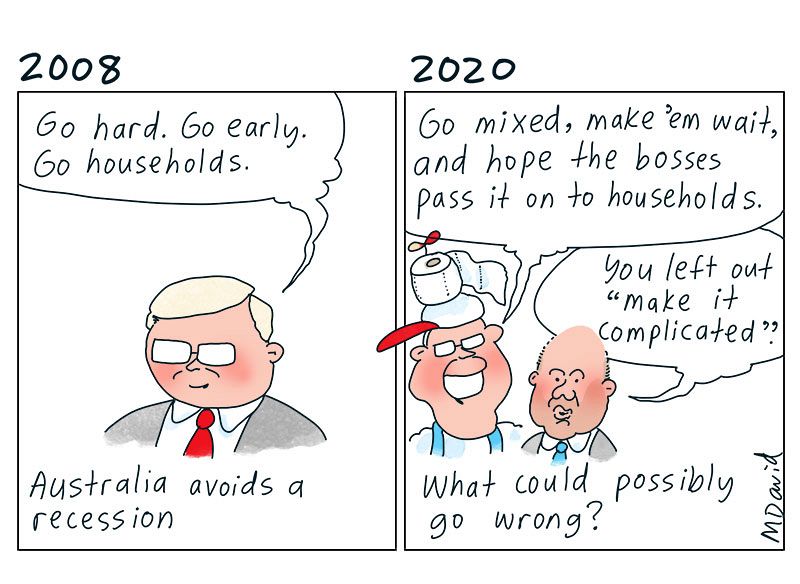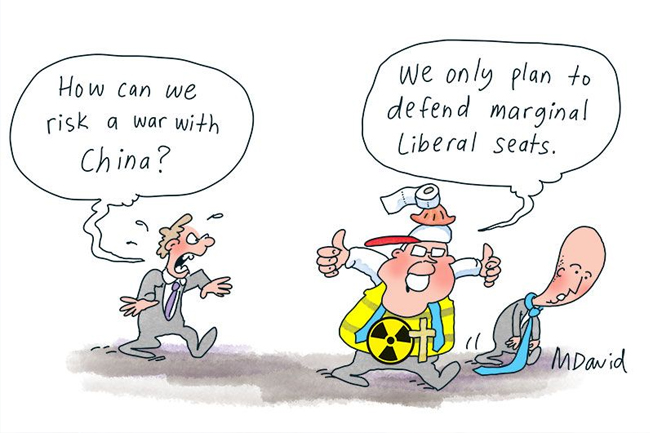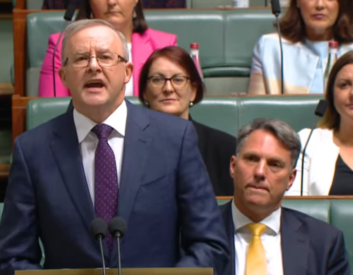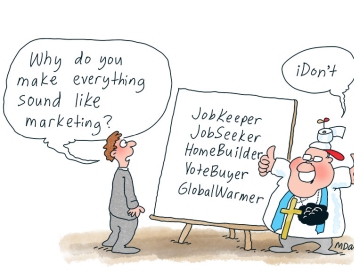Why would the Government buy bonds as it sells bonds? Why would it borrow money when it has its own money?
Various explanations have been appearing lately that purport to explain how the Government is raising the money it is suddenly splashing around to support (some) people through the COVID-19 shutdown. There are also explanations of how the Reserve Bank of Australia (RBA) is engaging in "quantitative easing" (QE) to support the economy through the shutdown and beyond.
It seems there may be at least three things happening: the RBA is buying bonds in order to inject extra money ("liquidity") into the financial sector and keep interest rates low; the RBA is funding some spending by the Government; and the Government is borrowing money from the private sector by selling bonds.
I’m not sure if the RBA is funding any Government spending because most of the commentary speaks of a Government deficit and of the Government borrowing money it will have to pay back, with interest.
Yet, the RBA has in the past conceded that it could directly fund Government spending.
In any case, it seems the Government is buying bonds with one hand (the RBA doing its QE) and selling bonds with the other (borrowing to spend). Why would it do that? Because that’s what it has always done? Because that’s how it was done before President Richard Nixon took the U.S. off the gold standard in 1971? Because you can’t just let the Government spend money, because of Weimar, Zimbabwe, hyperinflation. The horrors!
The RBA trades bonds to manipulate the interest rate (although at the moment it is countering its own professed goal by trading in both directions). Is it not strange that in a supposedly free-market financial system one of the central variables is centrally manipulated?
The reason is supposedly to regulate the money supply, though it is largely ineffectual. It would be much more effective for the Government to use taxes and spending for that purpose, or even (more horrors) to regulate private bank credit, as Prime Minister Bob Menzies used to do. But you can’t do those things because that would be "interfering" in the market.
In all of this, it's implicit that the RBA is one "hand" of the Government. That is true, despite the alleged independence of the RBA in how it manages the money supply, interest rates and so on. That "independence" was legislated by the Bob Hawke Government and could be repealed.
The RBA acts as an agent of the Government, backed by the full authority of the Government.
But there’s another question lurking here. Where is the RBA getting the money to buy bonds?
The answer is it gets the money by typing numbers into accounts. It creates money out of nothing (well, money has to come from somewhere, and most of it these days is not printed paper). Commercial banks create a lot more money out of nothing, but that’s another story.
We have arrived at a basic fact. The Government creates and issues money. It might buy bonds or it might fund Treasury, but still it does create money.
The big question is: if the Government creates money, why would it want to borrow money? Is it confused? Perhaps it is confused because some people want it to be confused.
Before going into that, let’s see how the Government could proceed. Customers have stopped spending because of the virus shutdown, but there are still wages, rents, mortgages and so on to be paid. So the Government goes to Parliament and seeks authorisation to spend lots of money on wage subsidies, unemployment benefits and so on. Parliament agrees. That part has actually happened.
From there, the RBA could just key $130 billion into Treasury’s account and Treasury could set about spending.
First, let’s be clear that the Government would not just decide to spend a lot of money. Parliament would decide to spend a lot of money, using its normal process for authorising spending, which would apply regardless of the source of the money. So, this is not Zimbabwe.
What about inflation? Inflation happens when there is too much money chasing too few goods. But there is not too much money at the moment. There is a big shortfall of money being spent and the Government spending is to make up some of that shortfall. There is no immediate danger of inflation. If inflation should begin as the economy starts to recover, some of the extra money could be withdrawn from circulation through fees and taxes.
There would be no debt, in the usual sense. The Government’s money would be out there facilitating exchange, keeping the economy well oiled, and it could stay out there as long as it was needed. Nor would there by any interest due, so there would be no burden now or on future generations.
Ah, but there would still be a horrendous tax bill in years to come, to make up for the Government’s profligacy, would there not? Let’s be clear, the Government is being responsible, not profligate, and if that results in the economy returning to health then tax revenues would rise again.
Taxes would not be a large burden, horrendous or otherwise.
There was a larger "debt" at the end of World War II, but it was paid off within a few years because the economy was structured for full employment and full production, which resulted in the post-war boom.
Also, the commercial banks would still be busy creating money and debt, as well. We already carry a far larger burden of private debt than government debt. The "horrendous burden" language comes from those who don’t want the Government to realise it can spend its own money.
Now let’s come back to the RBA’s QE. During the Global Financial Crisis, some Governments did undertake QE, which puts money mainly into the financial sector. Mostly the QE money financed lower bond rates and higher asset prices (stocks, property). So the QE was great for financiers and not much use to the rest of us, and economies still went through recessions.
Except in Australia, where the Rudd-Swan Government spent directly into the economy, through pension bonuses, home insulation, school construction and so on. It worked and we were the only major nation to avoid a recession.
The lesson is that it makes a big difference whether the RBA buys bonds (for QE) or funds Government spending directly. QE mainly pushes up property and stock prices. Direct spending is of immediate benefit to people and the economy.
The financial sector hates this story because it wants politicians to think they have to borrow from it. This gives the financial sector both large profits and significant control over the Government. That’s why there is a lot of scare talk about hyper-inflation if the modern money theorists suggest the Government just spend its own money. We need to be aware that many of the financial commentators work in the financial sector.
Dr Geoff Davies is a commentator, scientist, and author of Economy, Society, Nature and The Little Green Economics Book. He blogs at BetterNature Books. You can follow Dr Davies on Twitter @BetterNatureOz.
 This work is licensed under a Creative Commons Attribution-NonCommercial-NoDerivs 3.0 Australia License
This work is licensed under a Creative Commons Attribution-NonCommercial-NoDerivs 3.0 Australia License
Support independent journalism Subscribe to IA.












